Student Blog
What are OS/OT?
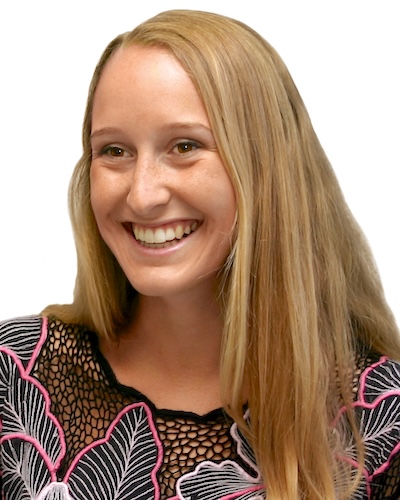
People-Watching in LA ⟩
September 13, 2011, by Kimberly
Living in LA What are OS/OT?
I will be the first to admit that I enjoy people-watching.
Before you think I’m completely weird, you have to know that I take public transport all over LA all the time; and when you are sitting on a bus for 45 minutes across town, it’s hard not to observe the people around you. People-watching for me is more about wondering where they come from, where they’re going. I guess you could say I am an OT at heart, just trying to figure out who a person is from a few seconds we happen to be sharing the same mode of transport. The best part about LA is that it is so culturally diverse and rich. The individuals I have met on the train, bus, Metrorail, walking or even riding my bike all have a different life-path that has brought them where they are today.
My favorite part of riding public transport is when a conversation is actually struck. During OT month last April I had a pin that said “I Love OT” on my backpack and the guy next to me said he had to ask why I loved “overtime.” After a laugh I corrected him and pointed out that OT really stands for occupational therapy and proceeded to have a conversation about the profession. Before we were finished 2 people next to him had joined in and the whole bus-load was educated on what a great thing OT is.
People who ride public transport range from the smallest baby, to the man who can’t afford dinner, to the businesswoman carrying groceries, to the student riding to class. It is really a snapshot of our community and provides an opportunity to get to know others we might not see driving from point A to point B on the freeway. Sometimes I wonder what people think my story is. Well, all they have to do is ask . . . but for now I am content simply observing and smiling at the complexity of human life through the lens of a simple bus ride.
⋯
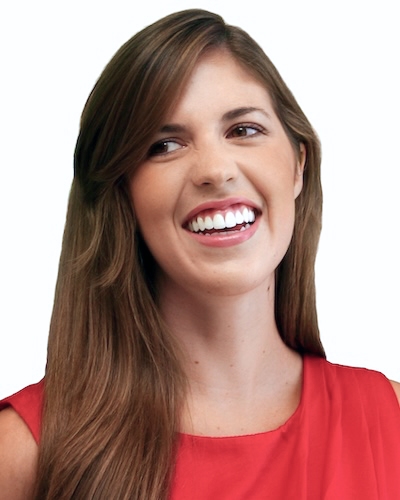
Why I Chose Occupational Therapy ⟩
September 13, 2011, by Chelsea
Classes What are OS/OT?
Occupational Therapy (OT) seems to attract a diverse array of people, but all of which have a few key characteristics in common: they are amicable, creative, investigative, caring, and interested in many different things. I consider myself as falling into this category. I’ve always had many different hobbies ranging from playing tennis to doing black and white photography. Similarly, I have always had many different interests in school — mainly in the domains of science and art.
When I came to USC as an “Undecided” freshman, I started by taking a few biology and chemistry classes and a few art history and photography classes. I was having such difficulty deciding what to declare as my major that at the end of my freshman year I visited USC’s career counseling office where I discovered the happy-medium that was occupational therapy. I learned that occupational therapy required both creative thinking and scientific knowledge; and that you could find the therapeutic value in the activities you love doing and incorporate them into therapy. My first OT class that I took was Intro to Occupational Therapy with Kate Crowley and, from that point on, I knew I wanted to be an occupational therapist. Kate’s brilliant way of engaging her students makes everyone look forward to her class. It was so interesting to evaluate our own daily occupations and determine how they were impacting our health. I started to realize what an enormous role my hobbies had on my daily health and well-being and became more cognizant of how to balance my lifestyle.
Currently, I am in the second year of the Master’s program and I’m taking my first OT elective: Hand Therapy. One of our first assignments is to observe hands and record what fascinates you. People can be so creative with their hands and use them so intricately. I think it is such a good example of how occupational therapy allows you to combine creativity with science because the hand is so complex. Now I just need to think of a way I could incorporate therapeutic aspects of tennis and photography into hand therapy . . . hmmm.
⋯
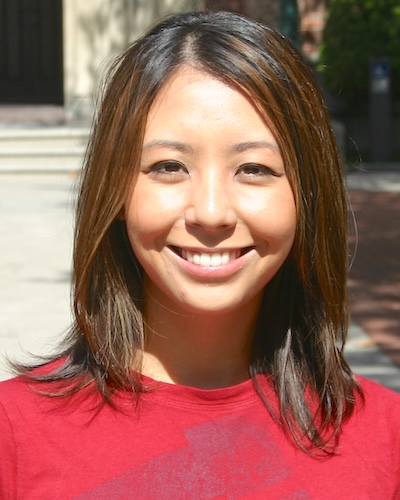
Wrapping up the End of the Program ⟩
April 20, 2011, by Carissa
Classes What are OS/OT?
Time flies by so fast! I can’t believe that next week will be our last week of classes. Looking back at the semester, I feel that so much has happened and so much is still happening. My lifestyle redesign course has really helped me to work on balancing my personal routine and creating healthier habits. The results have been maintained for the past few months . . . I hope I can continue it outside of the structure of my school schedule! While experiencing this class as a client and student, I also learned many professional skills. Last week, I successfully held my first structured group on how to create a healthy workspace for optimal functioning. With regards to my research classes, I have been able to learn so much about creating an evidence-based practice. In my qualitative research course, I am currently finishing a group project where we interviewed several seniors who have experienced spousal loss. We were able to gain insight into their lives with their spouses, as well as their current lives in relation to their experience of occupation. I laughed and cried through the in-depth stories provided in the interviews. This is one amazing thing about occupational therapy: getting the chance to really get to know our clients and learn about the things that really matter to them. Also, in the process of learning about others, I have learned so much about myself. Our program has worked to build me as a professional and has also guided me into a greater understanding of myself. I am so thankful for the personal and professional skills that I will carry with me into my career and for the rest of my life.
⋯
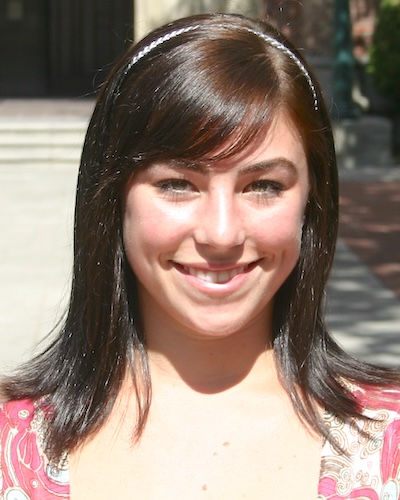
A chance to be the client and clinician ⟩
February 23, 2011, by Austen
Classes What are OS/OT?
One of the electives I chose to take this semester is Lifestyle Redesign. This class is taught by Dr. Camille Dieterle of the USC Faculty Practice for Lifestyle Redesign. Some of the topics we are learning about include the foundation of this practice area, the populations that benefit, the programs offered at the USC Faculty Practice, ways to develop programs and modules, and methods for helping people establish a healthier lifestyle.
A large portion of the class includes role-playing with a partner, taking turns playing the parts of the client and the clinician. We work in our “diads” to practice self-reflection and analysis, goal-setting, problem solving, and solution generation on each other. While one person acts as the client and identifies complaints, areas for improvement, things they would like to change, and/or what their goals are, the other person acts as the clinician, helping identify outcomes to work towards, possible solutions to get there, and ultimately collaboratively establishing an action plan with the client. This role-playing aspect of the class has been the most valuable to me so far. I am learning to communicate effectively in the clinician role, asking open-ended questions, avoiding judgement, and using non-directive comments. It is very challenging to not give advice when that may be what someone is looking for, but we are learning more effective ways of empowering the client so that they can reach their own solutions.
Not only am I learning skills I will use in the workplace next year, but I am also getting a lot out of being the client during our one-on-one sessions. I have learned a lot about myself, what is bothering me that I may not have been aware of, what I want, and what I want to change. It has been a great opportunity for self analysis and reflection, allowing me to identify aspects of my life that could be improved. In essence, it has been like free therapy. What a bonus!
This class has already equipped me with effective communication skills that I will be able to use in practice, no matter what setting. I have many more “tools” to add to my bag of tricks as a soon-to-be clinician, which makes me feel more confident and excited. When looking at the elective courses available, I highly recommend this one!
⋯
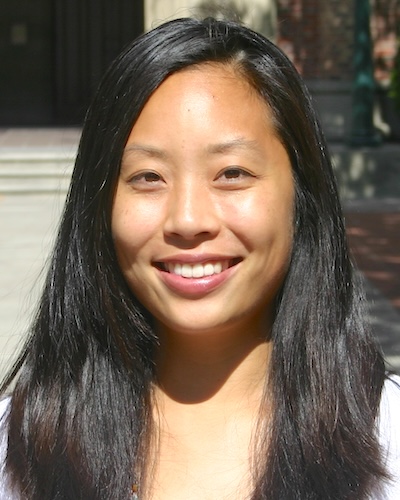
M.I. ⟩
February 15, 2011, by Yao
Classes School/Life Balance What are OS/OT?
A great opportunity and a blessing in disguise.
I just finished my first session and am about to start working on the homework for my second session of Motivational Interviewing. Motivational Interviewing is an elective class that is offered the spring semester over three Saturdays with days starting at 9am and scheduled to end around 4pm. I originally elected to take the class not only because one of my favorite professors was teaching it but also because it was a method that I planned to use in my research project. I went into class that first Saturday with the mindset of just learning a clinical skill and perfecting and perfecting until I felt that I had it right. Boy did I have the wrong idea!
The day started off with the basics and the history behind motivational interviewing and some video examples of practitioners incorporating it into practice. Then it came time to practice. Like I had mentioned before it was not a skill that should just be learned cold and practiced numerous times, rather it’s a skill that you need to feel and experience. This feeling and experience will guide your use of the skill, a real feeling and investment in the person that you’re talking to. To me it’s not a skill that you can just practice with a partner and in the middle ask if you’re doing it right, but something that when given the opportunity should be used to help fully understand the origin of certain actions and feelings. And as my professor mentioned, “If you do it well, people won’t even know it”; not to echo what I mentioned in my previous entry but sometimes listening can bring about more answers and chances for change than automatically trying to fix the problem as soon as you hear one.
On another note this motivational interviewing class has allowed me to tap into my emotions for the first time in about a year and a half. When things happened over these past two years that required emotional investment I tended to push them aside because there was that ever present need to do well in school and live in the moment with school and my social life here in Los Angeles. I was surprised at how I felt, not to say that there was a huge revelation and that I was denying my feelings these past two years. But I was able to identify emotions and feelings that I thought I have overcome or had just died down over the past years. I’m looking forward to the second session to further explore these feelings and try and resolve them instead of just pushing them aside and making school the excuse for not addressing them. It’s a nice complement to the other coursework this semester. It also is a reminder that no matter what is going on you have to consider taking care of yourself so you can provide your best care to others.
⋯





